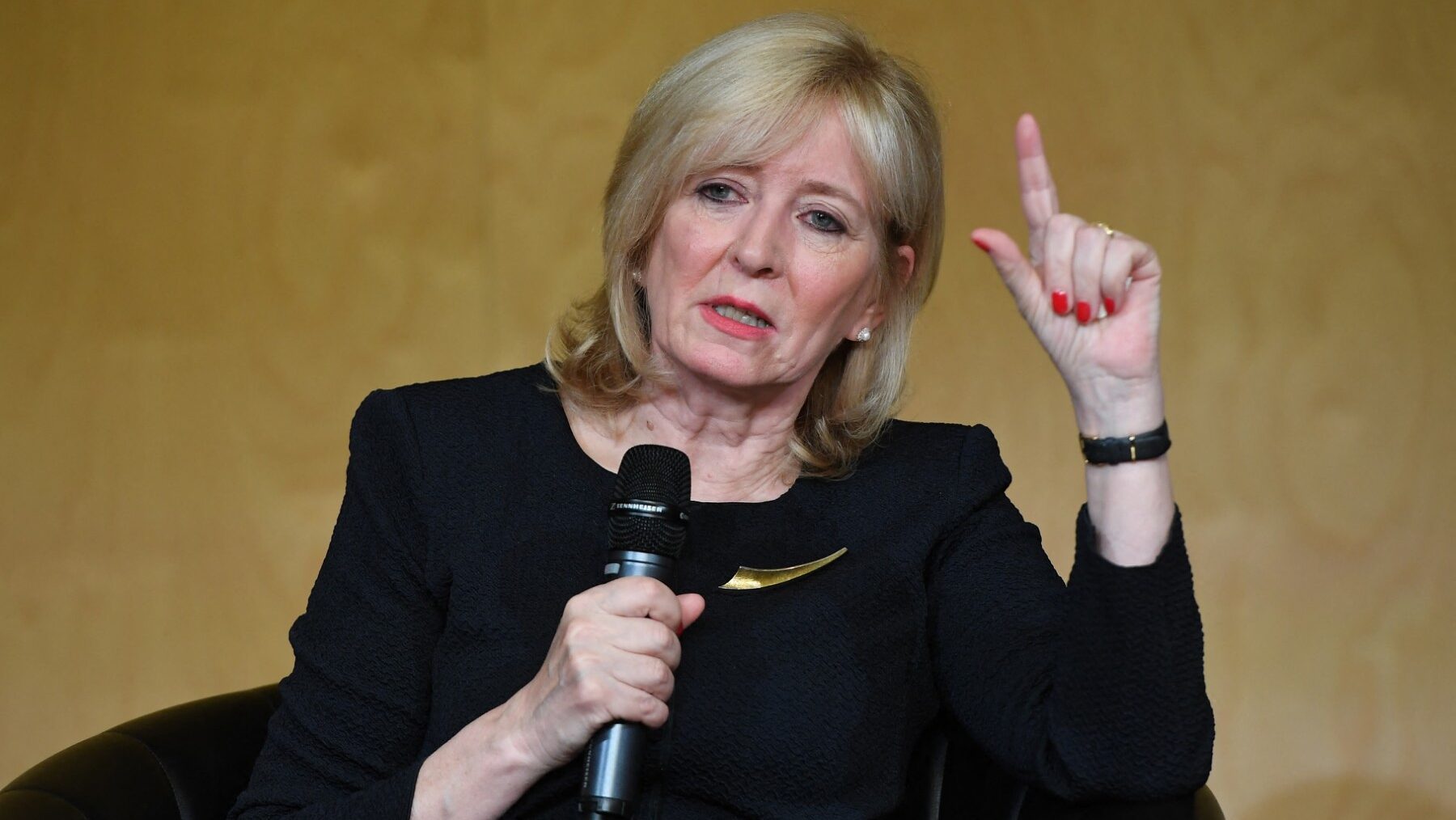
European Ombudsman Emily O’Reilly.
Photo: Attila Kisbenedek / AFP
European Ombudsman Emily O’Reilly rebuked mainstream media outlets for failing to hold the European Commission more to account as EC President Ursula von der Leyen has been refusing to release text messages to Pfizer CEO Albert Bourla that she used to negotiate the EU’s biggest vaccine procurement deal, worth €1.8 billion.
It’s been more than two years since the beginning of the scandal, often referred to as ‘Pfizergate.’ The issue revolves around the fact that the Commission chief not only ordered unnecessarily vast amounts of COVID-19 vaccines from Pfizer on taxpayer’s money—eventually forcing countries to dump hundreds of millions of expired doses—but did so while negotiating the price with the company’s CEO (and her husband’s business partner) via still unreleased text messages, the least transparent way possible.
The European Commission says it has “no record” of the texts, as these messages are often “short-lived,” are not subject to record-keeping requirements, and have been deleted since.
The case was brought before the European Ombudsman in September 2021 and was closed in July last year with the legal watchdog officially declaring “maladministration” on the Commission’s part and repeatedly calling for a renewed search and release of the texts.
The Commission, however, couldn’t care less. As O’Reilly’s office told The European Conservative, the Ombudsman “has recommendatory powers” only, so it has no legal channels to hold von der Leyen accountable besides stating the fact and asking for recourse.
That’s why O’Reilly turned to the media at a recent event held by the Brussels-based strategic consultancy SEC Newgate, wondering why journalists seem to hold back when it comes to von der Leyen and possibly the biggest corruption scandal in the history of the EU.
While acknowledging that the Commission’s strategy to “stonewall” the media makes it hard for journalists to hold von der Leyen accountable for anything, O’Reilly said she was “amazed [at how] such a prominent figure as von der Leyen isn’t questioned harder on her missing Pfizer texts.”
.@EUombudsman Emily O’Reilly discusses holding politicians and policy makers to account with EU journalists @PressClubBXLEU #BrusselsCalling pic.twitter.com/HeH7CgSldM
— Honor Mahony (@honormahony) November 29, 2023
On Wednesday, O’Reilly presented her special report in the European Parliament’s civil liberties (LIBE) committee—only the second of its kind in the last ten years—specifically on the outrageous lack of transparency within the EU’s decision-making circles.
The ombudsman’s report reveals that the European Commission regularly fails to answer freedom of information (FOI) requests on time. For instance, “systemic delays” were involved in 85% of all cases and over 60% of them required more than 60 working days to be dealt with, despite the legal time limit being 15.
At the hearing, O’Reilly asked the MEPs to join her fight against corruption in the EU:
This [report] is a last resort because the nature and scale of the maladministration I have found requires a broader public debate and close parliamentary scrutiny as the normal institutional exchange and dialogue has not managed to resolve the problem.
According to [EU] Regulation, access [to documents] is the rule, not an option … The Commission, at the highest levels, should demonstrate in its public statements and in practice that transparency is the rule and a priority for the institution.
"Access delayed is effectively access denied" says @EUombudsman as she presents to @EP_Justice her Special Report on Commission's delays in handling #accesstodocument requests pic.twitter.com/BY1BUbEdXY
— M. Silvia Bartolucci (@masilba) November 28, 2023
